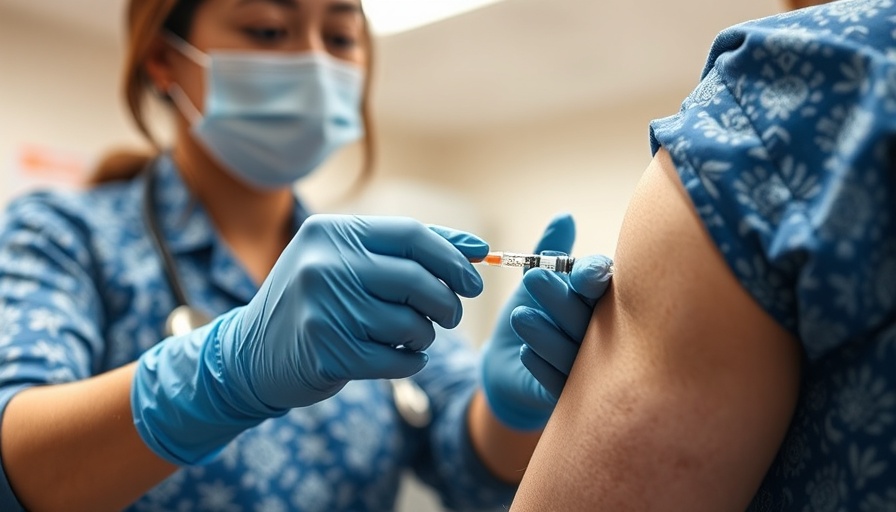
Measles Outbreaks Surge Across the U.S.: A Public Health Concern
The Centers for Disease Control and Prevention (CDC) revealed alarming data this week: U.S. measles cases have seen a dramatic increase of 35% in just one week, now reported in 12 states. With a current tally of 222 cases, this surge raises significant concerns about public health and vaccination rates across the nation. Health officials are cautious, noting that two deaths are linked to this outbreak, including a confirmed fatality in New Mexico, which has not reported measles-related deaths in four decades.
Understanding the Measles Virus
Measles, caused by the measles virus, is recognized as one of the most contagious diseases, primarily affecting children. It can remain airborne for up to two hours after a contagious person leaves an area, making it easier for the virus to spread, particularly in communities with low vaccination rates. The outbreak has already crossed southern borders, with most cases originating in Texas, which currently accounts for the majority of the case count, particularly in areas with high non-medical vaccine exemptions.
Why Vaccination Rates Are Falling
The CDC data highlights a troubling trend: vaccination coverage among U.S. kindergartners has dropped below the critical threshold of 95%, with a specific decline noted among communities prone to vaccine hesitancy. In fact, approximately 94% of current measles cases are attributed to individuals who are unvaccinated or whose vaccination status is unknown. During previous decades, stringent vaccine outreach led to a historical reduction in measles cases. However, this decline in vaccination rates, fueled by misinformation and personal beliefs, has put many at risk.
Community Response and Health Recommendations
The increasing number of measles cases has caught the attention of health officials nationwide. In response, health departments are stepping up their efforts, providing educational resources to the public on the safety and effectiveness of the measles, mumps, and rubella (MMR) vaccine. Experts recommend ensuring that all children receive their MMR vaccinations, as two doses provide around 97% protection against the measles virus. Parents are urged to consult with healthcare providers to confirm their children are up-to-date with vaccinations, especially before international travel where exposure risks elevate significantly.
Confronting Misinformation in Health Communities
Compounding the issue, public figures have sometimes transmitted misleading information regarding vaccinations and measles. Notably, calls for alternative prevention methods, such as vitamin A, have gained traction among vaccine-hesitant groups. Yet, public health experts emphasize that only vaccinations have been scientifically proven effective in controlling measles outbreaks. Misinformation has shown a direct correlation with the rising number of unvaccinated individuals, making ongoing education paramount.
Looking Ahead: Preventing Future Outbreaks
As 2025 continues, there is concern regarding how historical patterns of vaccine uptake are affecting public health. The CDC has begun creating models to better understand how measles outbreaks might be predicted and prevented in the future. Moreover, public health policies must adapt to addressing the misinformation climate, ensuring accurate vaccination information reaches all communities.
That said, the key takeaway must be clear: maintaining high vaccination coverage is crucial to prevent the re-establishment of diseases like measles, which was considered eliminated in the U.S. since 2000. The resurgence of measles cases is a cry for action—not just from health care providers, but from families and communities to ensure safety through vaccination.
Take Action: Vaccinate Your Children Today
In light of this resurgence, now more than ever, it is vital for parents and guardians to protect their children against measles through vaccination. Consult with a healthcare professional to learn more about the MMR vaccine and optimize your child’s health. By doing so, you're not only safeguarding your child but also contributing to community immunity—a shared responsibility we all have.
 Add Row
Add Row  Add
Add 




Write A Comment